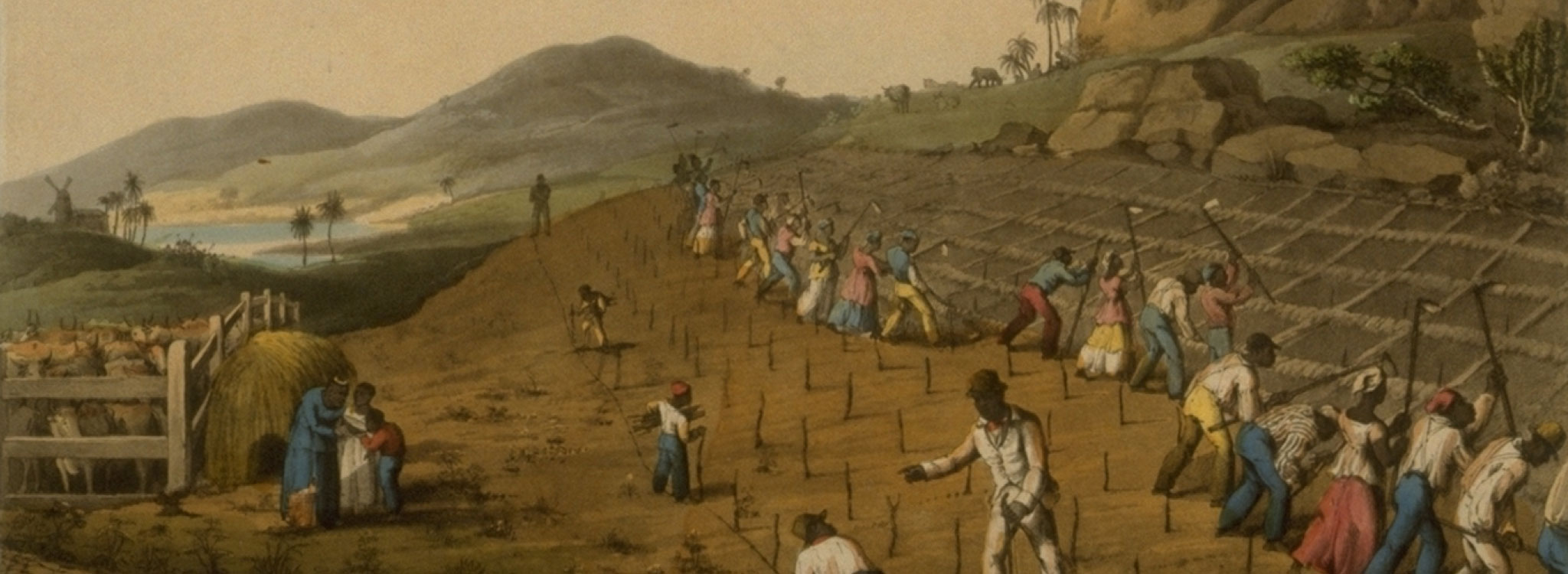Dandara was a female warrior who, along with her husband Zumbi, defended the colonial Brazilian Maroon community (quilombo) of Palmares from Portuguese incursions.
While no records of Dandara’s birth have come to light, she was most likely born in Brazil and moved to Palmares as a girl.
Palmares was Brazil’s most famous quilombo, established in the late sixteenth century in the northeastern captaincy of Alagoas. It was composed of several mocambos (village-sized communities) united to form a neo-African kingdom. Some inhabitants of Palmares were Brazilian born, while others were from Africa, especially West Central regions such as Angola. Palmares became economically self-sufficient by diversifying agricultural production. Colonial authorities perceived this self-sufficiency to be a threat to the system of slavery in Brazil and sought to resettle or eliminate the maroons. The quilombo resisted incursions from both the Dutch and the Portuguese to survive for nearly a century.
In 1678, Ganga Zumba, the leader of Palmares, accepted a peace treaty offered by the Portuguese governor of Pernambuco. This treaty required the people of Palmares to relocate to the Cucaú Valley, which Dandara feared would lead to the destruction of the Republic of Palmares and a return to slavery. Although she had once fought alongside Ganga Zumba, she opposed the terms of the treaty. Dandara is probably also responsible for convincing her husband, Zumbi (possibly Ganga Zumba’s nephew), to oppose the treaty as well. Zumbi challenged Ganga Zumba and led a revolt opposing any concessions to colonial authorities, creating a division within Palmares. Soon after, Zumbi succeeded Ganga Zumba as the leader of Palmares.
Scholars have uncovered several different versions of Dandara’s death. Some sources say that she was killed on February 6, 1694 with other residents of Palmares when Cerca Real dos Macacos (the settlement within Palmares ruled by Zumbi) was destroyed. Other sources contend that Dandara jumped off the highest mountain peak of the quilombo after Palmares fell, preferring suicide to a return to enslavement.
Palmares is generally regarded as the largest and longest-lived fugitive community in Brazil. In 1978, the date of Zumbi’s death (November 20) was instituted as the Brazilian National Day of Black Consciousness. Ultimately, quilombolas like Zumbi and Dandara have come to symbolize a tradition of black resistance in Brazil. They maintain this symbolic importance as Afro-Brazilians continue to struggle for racial and social equality. In 2017 the story of Dandara, Zumbi, and the 17th century quilombo of Palmares found a new audience in a graphic novel by Marcelo D'Salete, Angola Janga: Kingdom of Runaway Slaves. An English translation was published in 2019.
Online Resources
Chris Gavaler, "Angola Janga Brings Forth the History of a Kingdom of Fugitives," Pop Matters online, 2 May, 2019.https://www.popmatters.com/angola-janga-2635084588.html
Bibliography
Best, Leslie K. The Afro-Latino: A Historical Journey. Matteson, Ill.: Becslie, 2010.
Lara, Silvia Hunold. “Palmares and Cucaú: Political Dimensions of a Maroon Community in Late Seventeenth Century Brazil.” Paper presented at the 12th Annual Gilder Lehrman Center International Conference at Yale University: “American Counterpoint: New Approaches to Slavery and Abolition in Brazil,” 29–30 October 2010. www.yale.edu/glc/brazil/papers/lara-paper.pdf.
Lockhart, James, and Stuart B. Schwartz. Early Latin America: A History of Colonial Spanish America and Brazil. Cambridge: Cambridge University Press, 1983.
Oliveira, Eduardo de. Quem é Quem na Negritude Brasileira. vol. 1. Brasilia: Secretaria Nacional de Direitos Humanos do Ministério de Justiça, 1998.
Schwartz, Stuart B. Slaves, Peasants, and Rebels: Reconsidering Brazilian Slavery. Urbana: University of Illinois Press, 1992.
Stam, Robert. “Quilombo.” Cineaste, 15, no. 1 (1986): 42–44.
Stam, Robert. “Racial Representation in Brazilian Cinema and Culture: A Cross-Cultural Approach.” In New Latin American Cinema, edited by Michael T. Martin, pp. 335–364. Studies of National Cinemas 2. Detroit: Wayne State University Press, 1997.
Sterling, Cheryl. African Roots, Brazilian Rites: Cultural and National Identity in Brazil. New York: Palgrave Macmillan, 2012.
Williams, Erica Lorraine. "Dandara of Palmares." Dictionary of Caribbean and Afro-Latin American Biography, eds. Franklin W. Knight and Henry Louis Gates, Jr. .Oxford African American Studies Center. 31 May. 2017; Accessed 15 Sep. 2021. https://doi.org/10.1093/acref/9780195301731.013.73747
Author
Erica Lorraine Williams
Adapted by
James Almeida and Steven J. Niven
Contributing Institutions
Hutchins Center for African & African American Research, Harvard University, Cambridge, MA.
Oxford University Press (USA) African American Studies Center.





